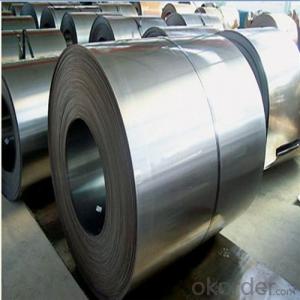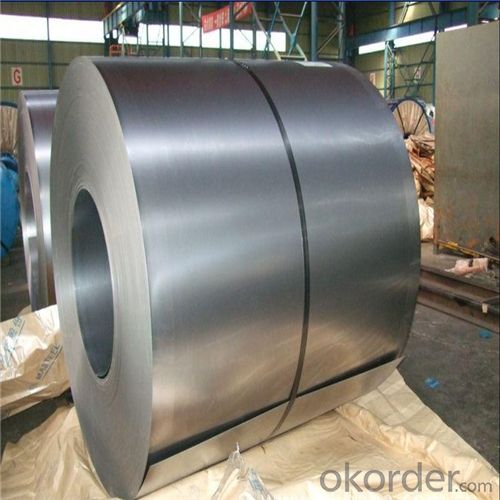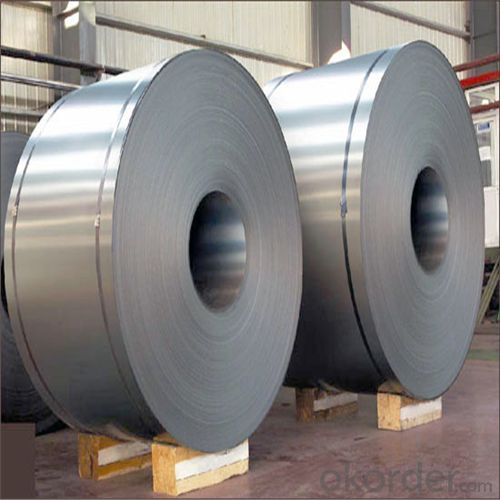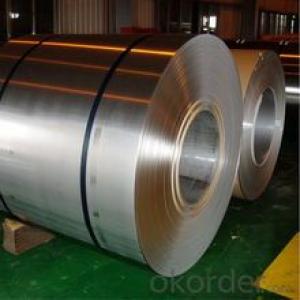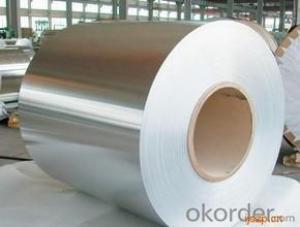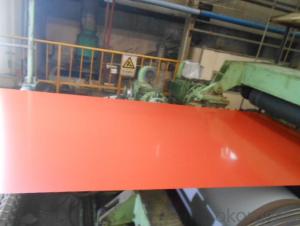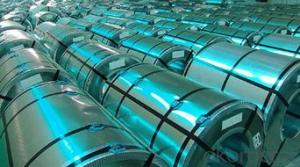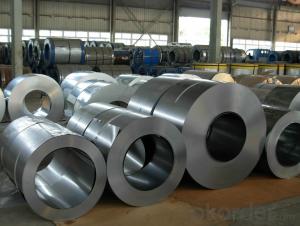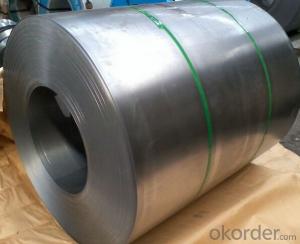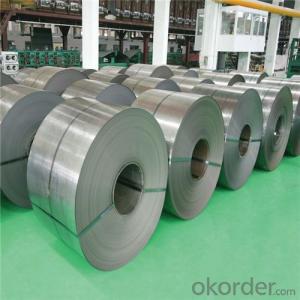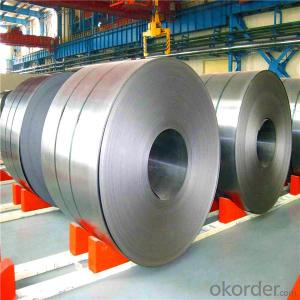Pure Cold Rolled Steel Coil Used for Industry with Too Low Price
- Loading Port:
- Shanghai
- Payment Terms:
- TT OR LC
- Min Order Qty:
- 25 m.t.
- Supply Capability:
- 5000 m.t./month
OKorder Service Pledge
OKorder Financial Service
You Might Also Like
Pure Cold Rolled Steel Coil Used for Industry
1.Structure of Cold Rolled Steel Coil Description
Cold rolling means that hot rolled steel coil is rolled below recrystallization temperature after pickling, and its finished product is full hard coil. After annealing process for full hard coil, the finished product is cold rolled production. The thin gauge cold rolled steel sheet and strip steel have advantages of low surface roughness, high dimension accuracy and good mechanical properties etc, and which have been widely used in auto manufacturing, home appliance, architecture, aviation, precision instrument, hardware and enameling industry etc.
2.Main Features of the Cold Rolled Steel Coil
•High Purity
•Easy control and operation
•High strength
•Fast melting
•Competitive price
•Best Service
3. Cold Rolled Steel Coil Images
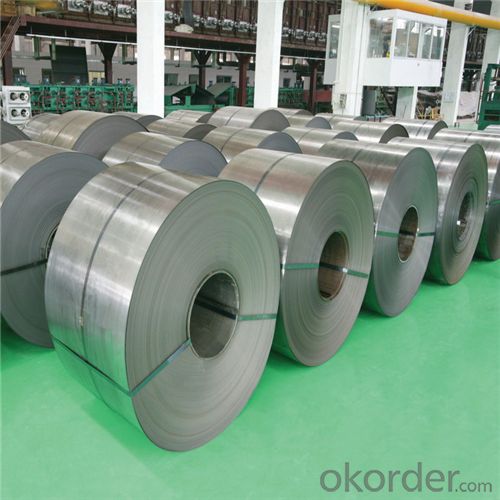
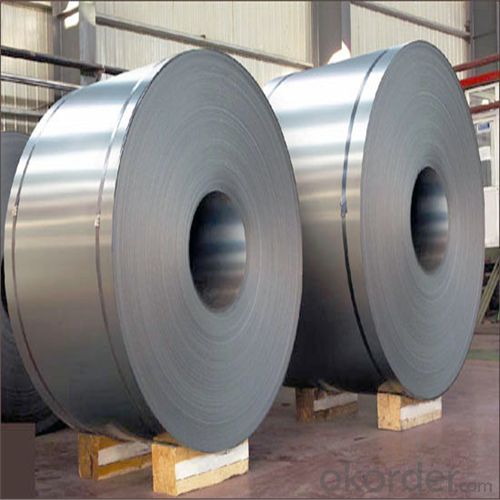
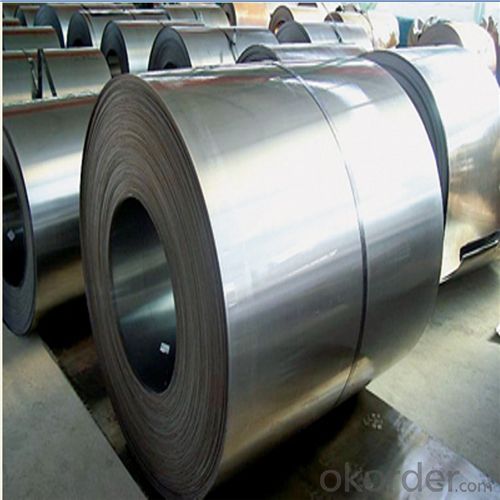
4. Cold Rolled Steel Coil Specification
COLD ROLLED STEEL COIL | |
Thicknenss | 0.10mm-4.00mm |
Width | 600mm-2000mm |
Sheets length | 1200-6000mm |
Coil inner diameter | 508-610mm |
Surface treatement | matt finish/bright finish,oiling/dry, bright anneal/black anneal |
Coil weight | 3-5t |
5.FAQ of Cold Rolled Steel Coil
We have organized several common questions for our clients,may help you sincerely:
①How about your company?
A world class manufacturer & supplier of castings forging in carbon steel and alloy steel,is one of the large-scale professional investment casting production bases in China,consisting of both casting foundry forging and machining factory. Annually more than 8000 tons Precision casting and forging parts are exported to markets in Europe,America and Japan. OEM casting and forging service available according to customer’s requirements.
②How to guarantee the quality of the products?
We have established the international advanced quality management system,every link from raw material to final product we have strict quality test;We resolutely put an end to unqualified products flowing into the market. At the same time, we will provide necessary follow-up service assurance.
③How long can we receive the product after purchase?
In the purchase of product within three working days, We will arrange the factory delivery as soon as possible. The pecific time of receiving is related to the state and position of customers.Commonly 7 to 10 working days can be served.
- Q: Looking for a new entry door for my home If someone would explain the features and benefits of both fiberglass and steel doors I would greatly appreciate it!!
- price and weight. fiberglas is better but more $
- Q: i got the belly button ring from icing and its surgical steel are they the same things?
- There are different grades of surgical steel. I'd look for something that says, implant surgical steel. I have the same trouble as your mother, but my daughter's is worse. This is not saying that you will have problems. but better safe!
- Q: What are the different methods of coil welding for steel coils?
- There are several different methods of coil welding for steel coils, each with its own advantages and disadvantages. Here are some of the most commonly used methods: 1. Resistance Welding: This method involves passing an electric current through the coils to generate heat, which then fuses the two ends together. Resistance welding is a fast and efficient process that produces strong and reliable welds. It is commonly used in industries where high-speed production is required. 2. Arc Welding: Arc welding uses an electric arc between an electrode and the workpiece to create a weld. This method can be further divided into different processes, such as shielded metal arc welding (SMAW), gas metal arc welding (GMAW), and flux-cored arc welding (FCAW). Arc welding provides good penetration and can be used on a wide range of steel coils. 3. Laser Welding: Laser welding utilizes a high-powered laser beam to melt and fuse the two ends of the coils together. This method offers precise control, high welding speeds, and minimal distortion. It is often used in applications where precision and aesthetics are crucial, such as the automotive and electronics industries. 4. Induction Welding: Induction welding involves heating the coils using electromagnetic induction. The heat generated melts the edges, which are then pressed together to form a weld. This method is particularly suitable for thin-gauge steel coils and provides good control over the welding process. 5. High-Frequency Welding: High-frequency welding utilizes high-frequency current to heat and weld the coils together. This method is commonly used for pipes and tubes and offers high production rates and good weld quality. 6. Friction Welding: Friction welding uses the heat generated by rubbing the two ends of the coils together to create a weld. This method is fast, reliable, and produces strong joints. It is often used in applications where high-strength welds are required, such as the automotive and aerospace industries. These are just a few of the different methods of coil welding for steel coils. The choice of method depends on factors such as the type and thickness of the steel, the required weld strength, production speed, and overall project requirements.
- Q: What are the environmental considerations of using steel coils?
- There are several environmental considerations associated with using steel coils. Firstly, the production of steel coils involves a significant amount of energy and resources. Steel production is a carbon-intensive process, contributing to greenhouse gas emissions, particularly from the use of fossil fuels in the manufacturing process. The extraction and processing of iron ore to produce steel coils also require extensive mining activities, which can lead to habitat destruction and soil erosion. Additionally, the transportation of steel coils can have environmental impacts. Steel coils are generally heavy and bulky, requiring large vehicles for transportation. This can result in increased carbon emissions and air pollution due to the use of fossil fuel-powered transportation methods. Furthermore, the disposal or recycling of steel coils can pose environmental challenges. If steel coils are not properly managed after use, they can end up in landfills or incinerators, contributing to waste generation and potential pollution. However, steel is a highly recyclable material, and by implementing effective recycling practices, the environmental impact of steel coil disposal can be minimized. Lastly, the use of steel coils in construction and manufacturing industries can have indirect environmental impacts. Steel coils are commonly used in the construction of buildings and infrastructure, which can result in deforestation and habitat loss due to land clearing. Moreover, the manufacturing processes that utilize steel coils may generate waste, pollutants, and emissions that can harm ecosystems and human health if not properly regulated and managed. To mitigate the environmental considerations associated with using steel coils, various measures can be taken. These include implementing energy-efficient technologies and practices in steel production, promoting sustainable mining practices, optimizing transportation logistics to reduce emissions, encouraging responsible disposal and recycling of steel coils, and promoting the use of alternative materials or steel products with a lower environmental footprint, such as recycled steel or steel with a higher proportion of recycled content.
- Q: How do steel coils contribute to the automotive manufacturing sector?
- Steel coils are essential in the automotive manufacturing sector as they are used to produce various components such as body parts, frames, and suspension systems. The high strength and durability of steel coils make them ideal for ensuring the safety and structural integrity of vehicles. Additionally, steel coils are easily moldable, allowing manufacturers to create complex shapes and designs, contributing to the overall aesthetics and functionality of automobiles.
- Q: how many persent of manganese in all types of carbon steel
- No problem with other answers but there is a high carbon/manganese steel called Hadfields Steel which has been used as armour plate in pilots seats in fighter aircraft in the second world war.This steel contains about 13% manganese and about 1.5 % carbon and is non-magnetic because it retains it's high temperature crystal type(austenite).When it is stuck with a bullet it absorbs the energy of the strike by changing crystal structure to the magnetic form of iron(in this case shock Martensite),I should think that it still has a role in the scoops and picks in earth-moving and farming blades.Well you did ask about all types of carbon steel!
- Q: I need to penetrate steel on my car but don't know which bit to use. Are there special bits for steel?
- it's go through steel buddy. But i would imagine that a majority of your standard bits out there will do it. I know there are material specific bits but i would say if you didn't have real expensive drill bits I would try pretty much any of them. If you are talking about the frame of your car or something that thick, then a heavy-duty would be necessary. Don't go drop a lot of money on a diamond bit unless you just keep tearing them up trying to drill through whatever it is you're trying to accomplish. Ive seen wood bits go through some heavy duty metal, so give it a try and save some money.
- Q: If steel can rust with saltwater... then why are ships made of steel? can't we just use other metals like aluminium etc?
- aluminium is not good in saltwater Steel rusts in fresh air let alone saltwater but its alot cheaper than other mass produced metals you can rivet or weld it cheaply unlike stainless steel or Aluminium We could make them of wood but thats been tried Glass fibre and plastic is good for small boats but to do and Aircraft carrier size ship i doubt it
- Q: Which of the two are better for exhaust manifolds, im guessing the stainless steel right?
- I would go with the stainless steel. I know that there was recently a study done that said that the non-stick material is slowly leaking the non-stick coating into your food. There is a problem with the copper and other metal pans as well. Slowly poisoning you throughout the years. As far as the cast iron, I am not totally sure that there are any problems with those. I haven't heard anything about them that is. I do know that cast iron gets hotter and cooks faster than the other metals. I hope I was able to help. Good luck.
- Q: hi i was doing a little history project on guns. i was just wondering if anyone could help me find out what material was used before steel and why this material wasnt as good as steel ( its faults)thanks for your help
- The most common was bronze, which was the strongest material that could be cast, at least until the industrial revolution. Until that time, furnaces which could reach temperatures hot enough to melt steel did not exist. The only way to work with steel would have been forging, which means hammering it into shape while red-rot. Obviously, this is not a very practical method for making large thick-walled cannons (though it was done on occasion. Small arms such as pistols and muskets could be easily made of steel by hand forging.) The most practical way to make cannons was pouring molten bronze which melts at significantly lower temperature than steel. Cast iron was also used. Note that Cast Iron contains 3%-7% carbon, compared to steel which only contains between 2% to 0.2% carbon. Due to the excessive carbon content of cast iron, it's melting point is about 500 degrees lower than steel enabling it to be melted with pre-industrial furnaces. Unfortunately, cast iron is also brittle, unlike steel or bronze. This means that a defective or cracked casting could easily explode, sending iron shrapnel everywhere. (Also, maiming and killing the gun crew, an experienced gun crew was as valuable as the cannon itself!) For this reason. Cast iron cannon were usually considered a cheap, risky alternative to expensive but durable bronze.
Send your message to us
Pure Cold Rolled Steel Coil Used for Industry with Too Low Price
- Loading Port:
- Shanghai
- Payment Terms:
- TT OR LC
- Min Order Qty:
- 25 m.t.
- Supply Capability:
- 5000 m.t./month
OKorder Service Pledge
OKorder Financial Service
Similar products
Hot products
Hot Searches
Related keywords
